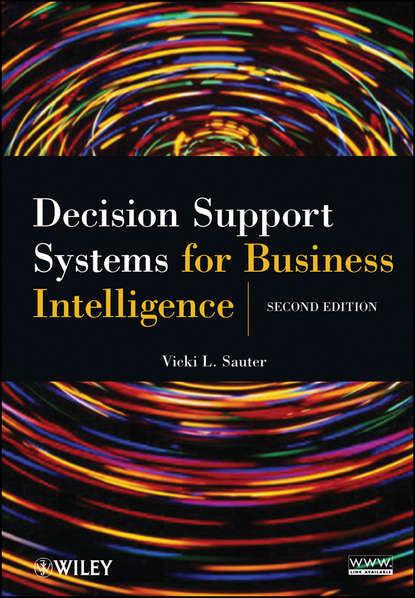Книга "Decision Support Systems for Business Intelligence" является руководством по созданию компьютерных систем поддержки принятия решений (DSS), которые играют важную роль в помощи профессионалам в различных областях практики понимать, какая информация нужна, когда она нужна и в какой форме для принятия умных и ценных бизнес-решений. В книге представлен уникальный подход, объединяющий теорию, приложения и технологии, который необходим для понимания последствий теории для проектирования DSS, а также навыков, необходимых для создания DSS. В этом издании рассмотрены многочисленные новые технологические разработки и достижения в области DSS. Автор представляет интегрированный анализ того, что каждому проектировщику DSS необходимо знать, рассматривая все темы на трех уровнях - общей теории, последствиях для проектирования DSS и разработке кода. В книге описываются различные аспекты DSS, применяемые в реальных приложениях, и на протяжении всей книги используется один основной пример DSS для облегчения покупки автомобилей. В книге находятся скриншоты из популярных программных пакетов JavaScript® и Adobe® ColdFusion, которые демонстрируют использование описанных техник. Книга "Decision Support Systems for Business Intelligence" является отличным материалом для курсов по информационным системам, системам поддержки принятия решений и интеллектуальному анализу данных на старших курсах бакалавриата и магистратуры. Она также служит практическим руководством для профессионалов, работающих в области бизнеса, статистики, инженерии и компьютерных технологий.
Электронная Книга «Decision Support Systems for Business Intelligence» написана автором Vicki Sauter L. в году.
Минимальный возраст читателя: 0
Язык: Английский
ISBN: 9780470634424
Описание книги от Vicki Sauter L.
Praise for the First Edition «This is the most usable decision support systems text. [i]t is far better than any other text in the field» —Computing Reviews Computer-based systems known as decision support systems (DSS) play a vital role in helping professionals across various fields of practice understand what information is needed, when it is needed, and in what form in order to make smart and valuable business decisions. Providing a unique combination of theory, applications, and technology, Decision Support Systems for Business Intelligence, Second Edition supplies readers with the hands-on approach that is needed to understand the implications of theory to DSS design as well as the skills needed to construct a DSS. This new edition reflects numerous advances in the field as well as the latest related technological developments. By addressing all topics on three levels—general theory, implications for DSS design, and code development—the author presents an integrated analysis of what every DSS designer needs to know. This Second Edition features: Expanded coverage of data mining with new examples Newly added discussion of business intelligence and transnational corporations Discussion of the increased capabilities of databases and the significant growth of user interfaces and models Emphasis on analytics to encourage DSS builders to utilize sufficient modeling support in their systems A thoroughly updated section on data warehousing including architecture, data adjustment, and data scrubbing Explanations and implications of DSS differences across cultures and the challenges associated with transnational systems Each chapter discusses various aspects of DSS that exist in real-world applications, and one main example of a DSS to facilitate car purchases is used throughout the entire book. Screenshots from JavaScript® and Adobe® ColdFusion are presented to demonstrate the use of popular software packages that carry out the discussed techniques, and a related Web site houses all of the book's figures along with demo versions of decision support packages, additional examples, and links to developments in the field. Decision Support Systems for Business Intelligence, Second Edition is an excellent book for courses on information systems, decision support systems, and data mining at the advanced undergraduate and graduate levels. It also serves as a practical reference for professionals working in the fields of business, statistics, engineering, and computer technology.



















